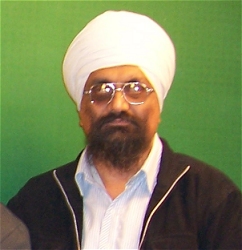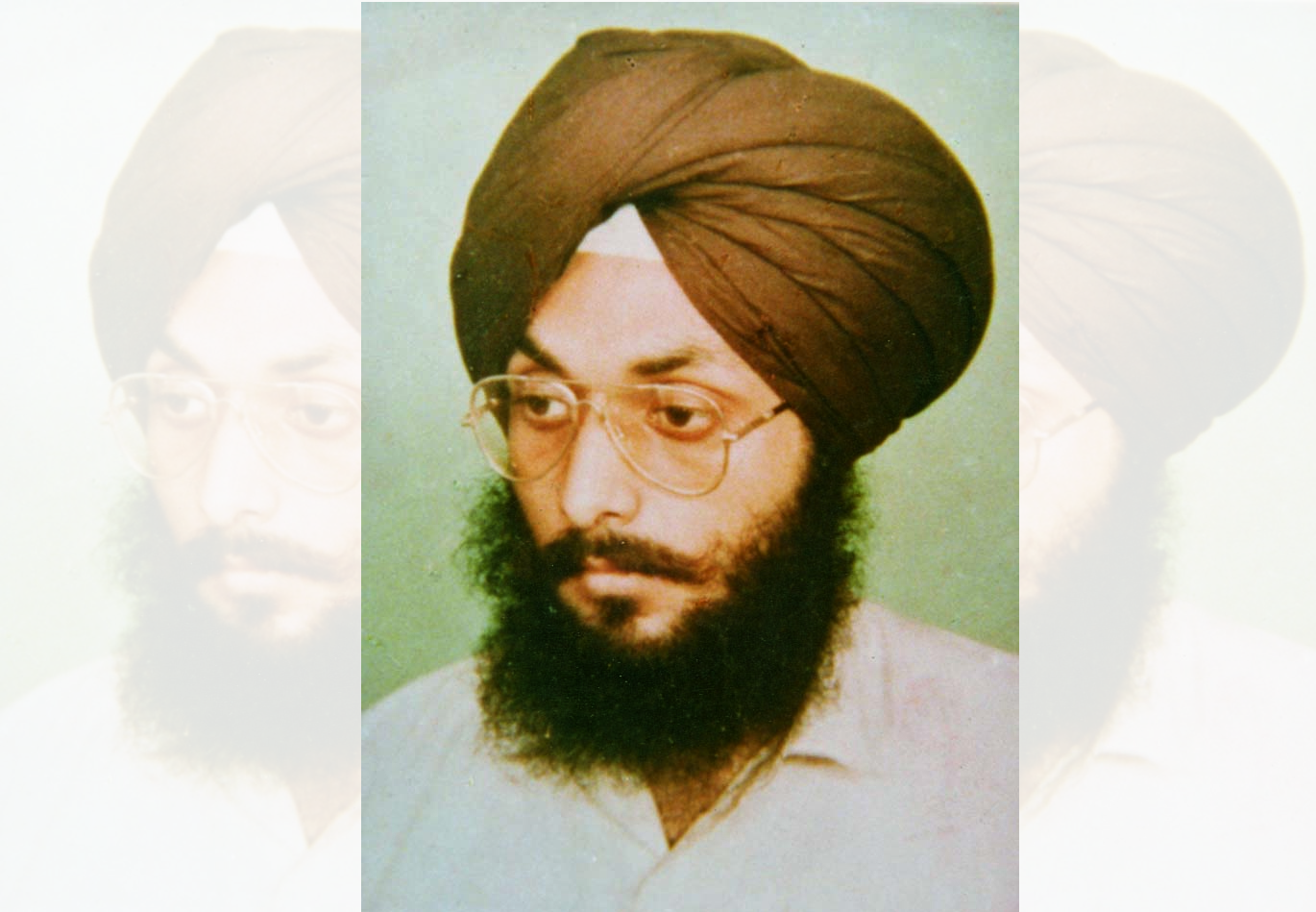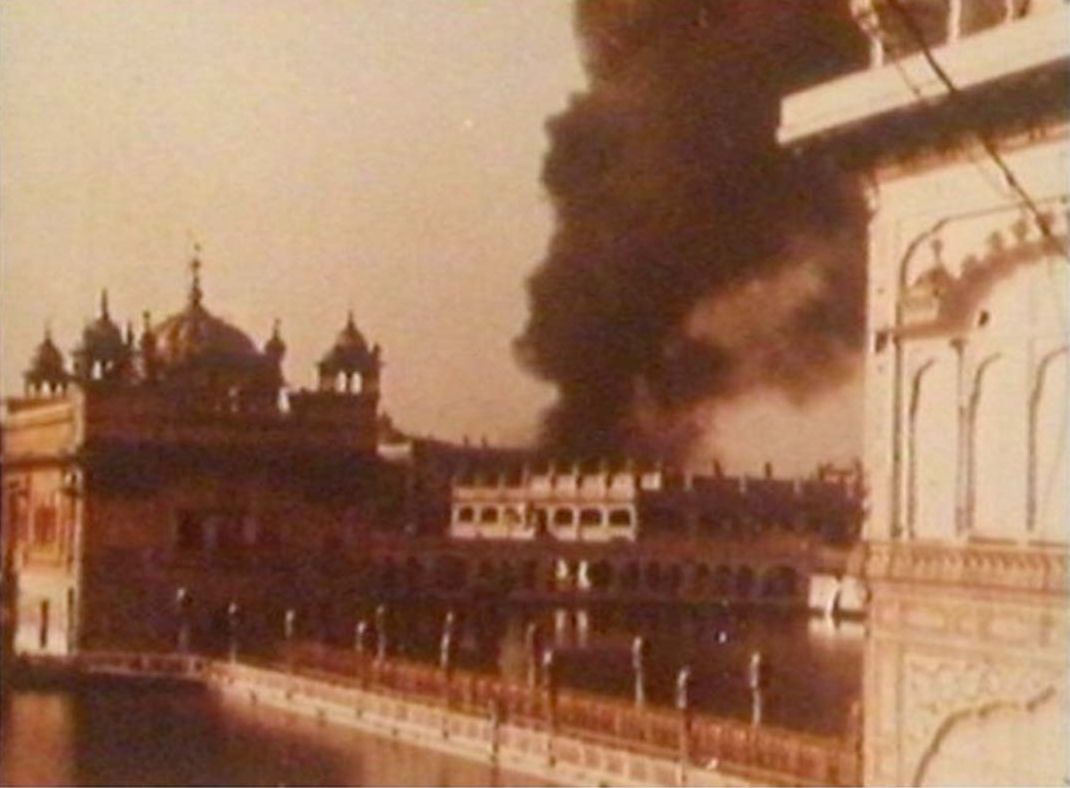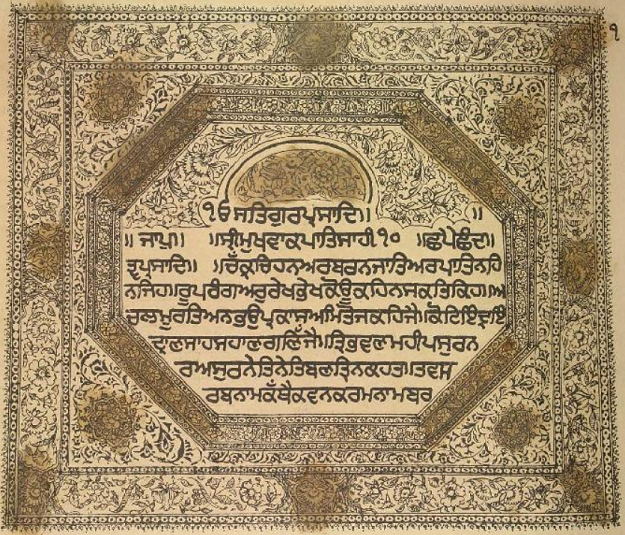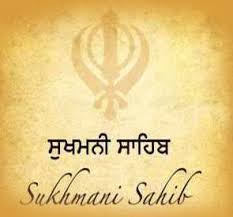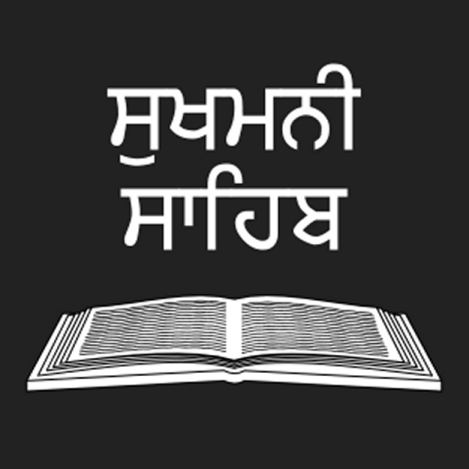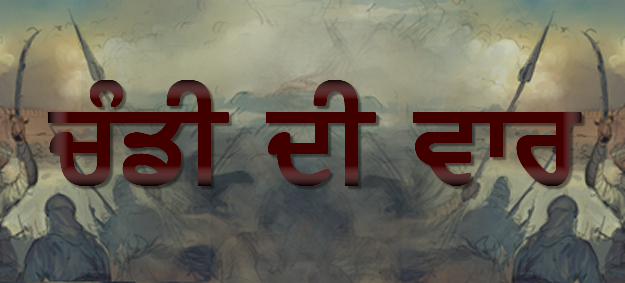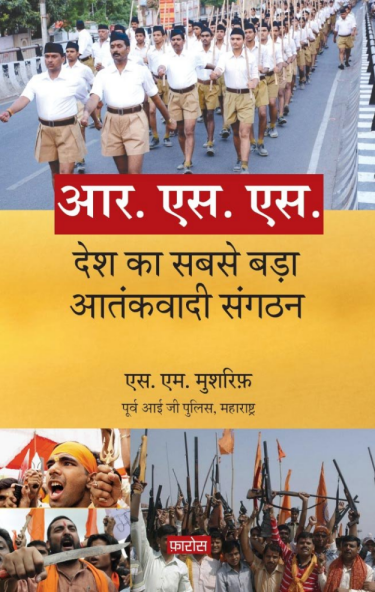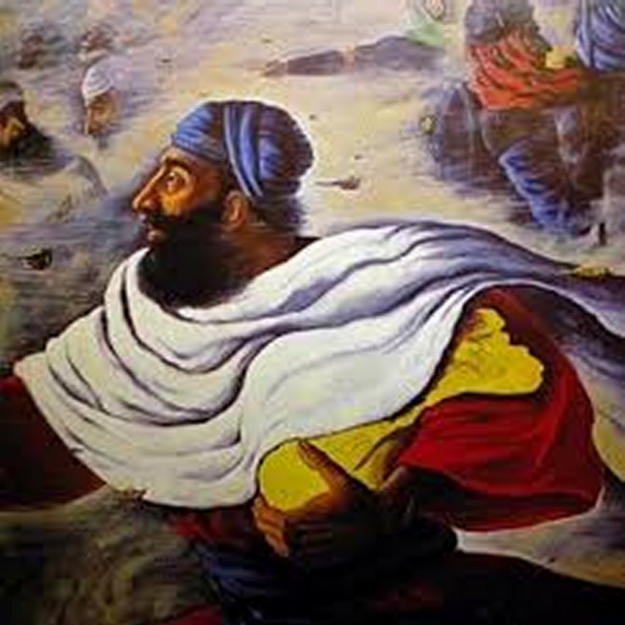
Explain the meaning of "Maas Maas Kar Moorakh Jhagre" shabad which is cited by supporters of eating meat.
The only Shabad (sacred hymn) in the whole of Sri Guru Granth Sahib Ji that is specifically cited by meat eaters in support of eating meat is the Shabad of Guru Nanak Sahib Ji in the Vaar of Raag Malaar that revealed at Kurekshetra during a solar eclipse day, a day considered holy by the Brahmins (Hindus priests). But carefully reading the the Gurbani hymns line by line it is clear that no line can be used to justify or support the eating of meat or present the eating of meat in a positive light.
The Guru is addressing a Vaishnav Pandit (scholar) who believes that he can achieve Nirvana (a state of liberation) only by avoiding meat as food and not trying to obtain the true wisdom through meditation. The Guru has stressed that only avoiding meat will not lead one to the achievement of Spiritual Bliss. Guru Sahib exposes the Pandit’s hypocrisy and double standards.
Note: Discussion of the Shabad (sacred hymn) is adapted from "Jhatka Maas Thath Gurmat Nirnay - Religious Meat" by Bhai Randhir Singh (translated by Bhai Kuldeep Singh)
ਸਲੋਕ ਮਃ ੧ ॥
Shalok, First Mehl:
ਪਹਿਲਾਂ ਮਾਸਹੁ ਨਿੰਮਿਆ ਮਾਸੈ ਅੰਦਰਿ ਵਾਸੁ ॥
First, the mortal is conceived in the flesh, and then he dwells in the flesh.
ਜੀਉ ਪਾਇ ਮਾਸੁ ਮੁਹਿ ਮਿਲਿਆ ਹਡੁ ਚੰਮੁ ਤਨੁ ਮਾਸੁ ॥
When he comes alive, his mouth takes flesh; his bones, skin and body are flesh.
ਮਾਸਹੁ ਬਾਹਰਿ ਕਢਿਆ ਮੰਮਾ ਮਾਸੁ ਗਿਰਾਸੁ ॥
He comes out of the womb of flesh, and takes a mouthful of flesh at the breast.
ਮੁਹੁ ਮਾਸੈ ਕਾ ਜੀਭ ਮਾਸੈ ਕੀ ਮਾਸੈ ਅੰਦਰਿ ਸਾਸੁ ॥
His mouth is flesh, his tongue is flesh; his breath is in the flesh.
ਵਡਾ ਹੋਆ ਵੀਆਹਿਆ ਘਰਿ ਲੈ ਆਇਆ ਮਾਸੁ ॥
He grows up and is married, and brings his wife of flesh into his home.
ਮਾਸਹੁ ਹੀ ਮਾਸੁ ਊਪਜੈ ਮਾਸਹੁ ਸਭੋ ਸਾਕੁ ॥
Flesh is produced from flesh; all relatives are made of flesh.
ਸਤਿਗੁਰਿ ਮਿਲਿਐ ਹੁਕਮੁ ਬੁਝੀਐ ਤਾਂ ਕੋ ਆਵੈ ਰਾਸਿ ॥
When the mortal meets the True Guru, and realizes the Hukam of the Lord's Command, then he comes to be reformed. Releasing himself, the mortal does not find release; O Nanak, through empty words, one is ruined. ||1||
DISCUSSION: No instruction exists to eat meat, so therefore, it cannot be established that this sacred hymn supports the eating of meat. Yes it is clear that one should not hate the word 'meat', and that one should not fall prey to meat. From these lines, only the hate of the word 'meat' has been criticised and has been established. It is clear that if people had the instinct to eat meat, then they would try to eat the breast of the mother that feeds them. The child only drinks milk from the breast, like it is holy. Here the nutrients for a child to survive are mentioned and doesn't establish that eating meat is acceptable. Guru Sahib explains that the child grows older and brings home a woman to start a life together, not to eat her. If any of these lines are used to justify eating meat then you are justifying to eat the tongue, face, stomach, everything, of a human as they are all meat. The go-ahead to eat meat cannot be gained from any of these lines.
ਮਃ ੧ ॥
First Mehl:
ਮਾਸੁ ਮਾਸੁ ਕਰਿ ਮੂਰਖੁ ਝਗੜੇ ਗਿਆਨੁ ਧਿਆਨੁ ਨਹੀ ਜਾਣੈ ॥
The fools argue about flesh and meat, but they know nothing about meditation and spiritual wisdom.
ਕਉਣੁ ਮਾਸੁ ਕਉਣੁ ਸਾਗੁ ਕਹਾਵੈ ਕਿਸੁ ਮਹਿ ਪਾਪ ਸਮਾਣੇ ॥
What is called meat, and what is called green vegetables? What leads to sin?
ਗੈਂਡਾ ਮਾਰਿ ਹੋਮ ਜਗ ਕੀਏ ਦੇਵਤਿਆ ਕੀ ਬਾਣੇ ॥
It was the habit of the gods to kill the rhinoceros, and make a feast of the burnt offering.
ਮਾਸੁ ਛੋਡਿ ਬੈਸਿ ਨਕੁ ਪਕੜਹਿ ਰਾਤੀ ਮਾਣਸ ਖਾਣੇ ॥
Those who renounce meat, and hold their noses when sitting near it, devour men at night.
ਫੜੁ ਕਰਿ ਲੋਕਾਂ ਨੋ ਦਿਖਲਾਵਹਿ ਗਿਆਨੁ ਧਿਆਨੁ ਨਹੀ ਸੂਝੈ ॥
They practice hypocrisy, and make a show before other people, but they do not understand anything about meditation or spiritual wisdom.
ਨਾਨਕ ਅੰਧੇ ਸਿਉ ਕਿਆ ਕਹੀਐ ਕਹੈ ਨ ਕਹਿਆ ਬੂਝੈ ॥
O Nanak, what can be said to the blind people? They cannot answer, or even understand what is said.
ਅੰਧਾ ਸੋਇ ਜਿ ਅੰਧੁ ਕਮਾਵੈ ਤਿਸੁ ਰਿਦੈ ਸਿ ਲੋਚਨ ਨਾਹੀ ॥
They alone are blind, who act blindly. They have no eyes in their hearts.
ਮਾਤ ਪਿਤਾ ਕੀ ਰਕਤੁ ਨਿਪੰਨੇ ਮਛੀ ਮਾਸੁ ਨ ਖਾਂਹੀ ॥
They are produced from the blood of their mothers and fathers, but they do not eat fish or meat.
ਇਸਤ੍ਰੀ ਪੁਰਖੈ ਜਾਂ ਨਿਸਿ ਮੇਲਾ ਓਥੈ ਮੰਧੁ ਕਮਾਹੀ ॥
But when men and women meet in the night, they come together in the flesh.
ਮਾਸਹੁ ਨਿੰਮੇ ਮਾਸਹੁ ਜੰਮੇ ਹਮ ਮਾਸੈ ਕੇ ਭਾਂਡੇ ॥
In the flesh we are conceived, and in the flesh we are born; we are vessels of flesh.
ਗਿਆਨੁ ਧਿਆਨੁ ਕਛੁ ਸੂਝੈ ਨਾਹੀ ਚਤੁਰੁ ਕਹਾਵੈ ਪਾਂਡੇ ॥
You know nothing of spiritual wisdom and meditation, even though you call yourself clever, O religious scholar.
ਬਾਹਰ ਕਾ ਮਾਸੁ ਮੰਦਾ ਸੁਆਮੀ ਘਰ ਕਾ ਮਾਸੁ ਚੰਗੇਰਾ ॥
O master, you believe that flesh on the outside is bad, but the flesh of those in your own home is good.
ਜੀਅ ਜੰਤ ਸਭਿ ਮਾਸਹੁ ਹੋਏ ਜੀਇ ਲਇਆ ਵਾਸੇਰਾ ॥
All beings and creatures are flesh; the soul has taken up its home in the flesh.
ਅਭਖੁ ਭਖਹਿ ਭਖੁ ਤਜਿ ਛੋਡਹਿ ਅੰਧੁ ਗੁਰੂ ਜਿਨ ਕੇਰਾ ॥
They eat the uneatable; they reject and abandon what they could eat. They have a teacher who is blind.
ਮਾਸਹੁ ਨਿੰਮੇ ਮਾਸਹੁ ਜੰਮੇ ਹਮ ਮਾਸੈ ਕੇ ਭਾਂਡੇ ॥
In the flesh we are conceived, and in the flesh we are born; we are vessels of flesh.
ਗਿਆਨੁ ਧਿਆਨੁ ਕਛੁ ਸੂਝੈ ਨਾਹੀ ਚਤੁਰੁ ਕਹਾਵੈ ਪਾਂਡੇ ॥
You know nothing of spiritual wisdom and meditation, even though you call yourself clever, O religious scholar.
ਮਾਸੁ ਪੁਰਾਣੀ ਮਾਸੁ ਕਤੇਬੀ�'| ਚਹੁ ਜੁਗਿ ਮਾਸੁ ਕਮਾਣਾ ॥
Meat is allowed in the Puraanas, meat is allowed in the Bible and the Koran. Throughout the four ages, meat has been used.
ਜਜਿ ਕਾਜਿ ਵੀਆਹਿ ਸੁਹਾਵੈ ਓਥੈ ਮਾਸੁ ਸਮਾਣਾ ॥
It is featured in sacred feasts and marriage festivities; meat is used in them.
ਇਸਤ੍ਰੀ ਪੁਰਖ ਨਿਪਜਹਿ ਮਾਸਹੁ ਪਾਤਿਸਾਹ ਸੁਲਤਾਨਾਂ ॥
Women, men, kings and emperors originate from meat.
ਜੇ ਓਇ ਦਿਸਹਿ ਨਰਕਿ ਜਾਂਦੇ ਤਾਂ ਉਨ੍ਹ੍ਹ ਕਾ ਦਾਨੁ ਨ ਲੈਣਾ ॥
If you see them going to hell, then do not accept charitable gifts from them.
ਦੇਂਦਾ ਨਰਕਿ ਸੁਰਗਿ ਲੈਦੇ ਦੇਖਹੁ ਏਹੁ ਧਿਙਾਣਾ ॥
The giver goes to hell, while the receiver goes to heaven - look at this injustice.
ਆਪਿ ਨ ਬੂਝੈ ਲੋਕ ਬੁਝਾਏ ਪਾਂਡੇ ਖਰਾ ਸਿਆਣਾ ॥
You do not understand your own self, but you preach to other people. O Pandit, you are very wise indeed.
ਪਾਂਡੇ ਤੂ ਜਾਣੈ ਹੀ ਨਾਹੀ ਕਿਥਹੁ ਮਾਸੁ ਉਪੰਨਾ ॥
O Pandit, you do not know where meat originated.
ਤੋਇਅਹੁ ਅੰਨੁ ਕਮਾਦੁ ਕਪਾਹਾਂ ਤੋਇਅਹੁ ਤ੍ਰਿਭਵਣੁ ਗੰਨਾ ॥
Corn, sugar cane and cotton are produced from water. The three worlds came from water.
ਤੋਆ ਆਖੈ ਹਉ ਬਹੁ ਬਿਧਿ ਹਛਾ ਤੋਐ ਬਹੁਤੁ ਬਿਕਾਰਾ ॥
Water says, "I am good in many ways." But water takes many forms.
ਏਤੇ ਰਸ ਛੋਡਿ ਹੋਵੈ ਸੰਨਿਆਸੀ ਨਾਨਕੁ ਕਹੈ ਵਿਚਾਰਾ ॥੨॥
Forsaking these delicacies, one becomes a true Sannyaasee, a detached hermit. Nanak reflects and speaks. ||2||
DISCUSSION: The meaning behind the first two lines of this hymn is that to have continuous arguments, with people who are mistaken about the religious stance on meat, is a foolish act. These people cannot even differentiate between meat and vegetables, and whether the eating of one of these is a sinful act. There isn't even a hint that meat is acceptable, so it amazes me how some people can find anything to support their evil acts. This verse states that by uttering the vocabulary of meat and by looking at meat, one isn't punished, one doesn't become a saint by constantly denouncing meat and that one doesn't become a sinner if one doesn't "hate" meat. It can also be concluded from these extracts that the killing of animals is an evil act and is a great sin. Since purchase and eating of vegetables through money which was earned by committing sins is also a sin like eating flesh. The distinction between "What is meat and what is green vegetables" can only be determined by those who have the Gurmat knowledge and the Gurmat spirituality to do so. To just argue over meat without these qualities is the act of a fool. But instruction to eat meat cannot be gained from these two extracts under any condition.
In the 3rd and 4th lines Guru Sahib shows that the sacrificial acts of Hindus are in accordance with the Vedas. The killing of cattle, and then offering it as a sacrifice is the act of Hindus. But their hypocrisy lies in the fact that they publicly make a show of their disgust of meat; they can't even bear the smell of it. This extract shows how false people can be. Permission to eat meat, still cannot be established rather the falseness of people's behaviour is shown.
The following lines is more criticism of hypocrisy, but still no trace of a positive word about meat. It is apparent that when a child is born it doesn't have a need to consume meat. Then the child shouldn't need the food which came through blood in umbilical cord either. That is the example they have given. How can it be that the nutrients that come through blood in the umbilical, cause a person to desire meat? They should eat the umbilical cord then! If they can claim that, then what do they say about eating just fish? Why doesn't it show that all kinds of meat are needed? Why have some people only taken this as permission to eat fish? Fish doesn't even have blood, and even if there is, only very little.
These people hold their noses when they see meat but, they do not realise that they too are made of flesh and blood which came from their parent's blood. To hate the word 'meat' doesn't make a person more religious. Throughout both extracts the word 'meat' is used but, there isn't a single word in support of it.
Even after the 12th line, it cannot be established that eating meat is permissable. If our meat-eating brothers want to establish permission, then they should tell me what they think of the 12th extract; the one which mentions meat from home and from outside? If they say that the meat at home is the meat of humans, and the meat from outside is regular meat then they are not even worthy of being called meat-eaters. If they do not see eating human flesh as acceptable, then they shouldn't eat animal flesh either. But these words fall upon deaf ears. If they prepared and ate the meat of humans, then their argument would make sense. What is the difference between these meats; all beings on earth are merely statues of meat. Why have a hatred towards beings made of meat? If there is a hatred, then it should be for all meat, not selected meat. This verse criticises those who eat meat at home but, when they are outside, they say the can't stand it. That is why the Guru says, O' Pandits, while sitting secretly at home you eat meat but, to keep your face in front of people outside, you put on an act. The 13th extract ("All beings and creatures are flesh...") goes along with the others from before.
Line 14 stands alone and states that those people who have not adopted the True Guru's wisdom and who have no faith in God, continue to eat all kinds of things. The food that should be eaten is "avoided" and that which should not be eaten is continually consumed. Acceptable food (that which is obtained through an honest living) is never consumed but unacceptable food (that which is earned through deception) is forever consumed.
Whether meat eaters or meat avoiders, if their thinking is not of a righteous nature then arguing over this matter is merely foolish. Those God oriented individuals who consider this matter with importance implement the correct decision within their lives. They are highly respectable individuals who only do good and shun outward appearances. They do not get involved in fruitless arguments. Those who abandon meat for their spirituality are truly accepted. But the efforts of those who abandon meat to be distinguished as "meat avoiders" are nothing more than hipocrisy. On the other hand, those individuals who eat meat are not necessarily hypocrites but are just mistakenly in the habit of eating it. But those people who look for support from the Gurbani to justify their greed for meat-eating, are merely frauds.
Those people who are intent on eating meat have instigated these arguments over. Those who have not desire to consume meat have not need to get into arguments. Their positive efforts are not in any danger. The danger is for those who consume meat. These days, people who eat meat stand proudly and claim that those who do not eat meat are punishable and cowards, and that there is no wrong in their consumption of meat. What arrogance. Some people fight wars and some people farm their land, both can become injured. But why would anyone want to attack an individual who never even grasped the weapon?
They make the innocent out to be the guilty. Those who do not fight injustice and do not fight for their country may be called cowards, but not those who refrain from eating meat. Those who don't eat meat are in fact, braver then those who do, and those who eat meat have been shown to display greater cowardice. Those who never administer fear, tyranny and injustice never fear the threats of others either. By worshipping the Fearless Lord they enter the world of fearlessness. The essence of the warrior stems for fearlessness. Fear comes to those who give or show fear to others. No meat eater has been declared as a true warrior to this day. A fearless warrior is only created by the conquering of the soul and this has been the case in our history. Up to this day, all saints and warriors recognised in the Khalsa Panth have been individuals who avoided the consumption of meat. No meat eating indivual has attained the true love of the Lord to date either.


